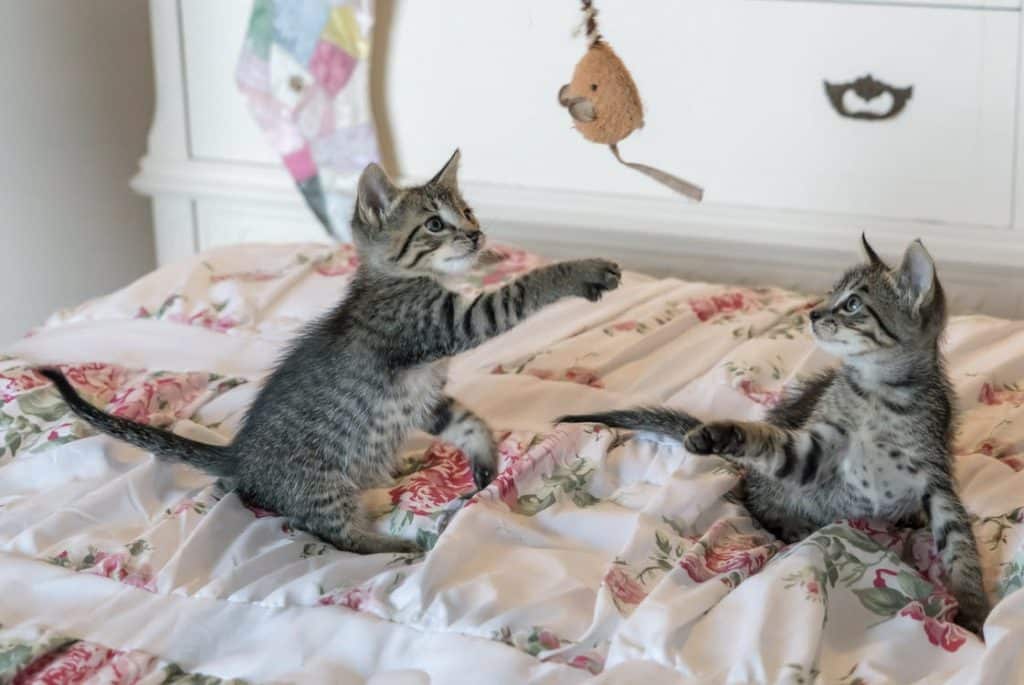

23 Tips for New Cat Owners
Owning a cat sure is rewarding but it also comes with great responsibility. Here’s what every new cat owner needs to know before welcoming a feline into the family.
Have you been smitten by your friend’s kitten? Are you now planning to bring a feline into your own family? These furry, four-legged creatures surely provide solid companionship but remember; looking after cats also involves a great deal of responsibility. From preparing your house and gathering essential pet supplies to learning about their unique needs, and more; there’s a lot that a new cat owner needs to know about and be ready for.
In this article, we have listed the basic facets of feline ownership. Give it a read so you can learn how to be an excellent pet parent.
1. What Do Your Building Rules Say?
If you live in an apartment or in a house on rent, you must first consult the management or the landlord. Cats might not be permitted on the property or you might be required to pay ‘pet rent’ for keeping one.
2. Adoption is a Better Option
By adopting a cat, you will not only get yourself a loving pet, but also have the satisfaction of saving a cat’s life. Every year, more than 2.5 million cats are put to death because of lack of space in shelters and rescue homes. Therefore, adoption is always the better option.
3. Kittens Need a High-Calorie Diet
Kittens can have nearly thrice the energy needs of an adult cat. Do some research into the dietary needs of your specific breed so you can help them grow up to be healthy and strong.
4. Set Up a Cat Room
Dedicate a room or a corner where your furry friend can feel at ease and get accustomed to the new surroundings. Arrange all the essential cat items here, including a cat bed, litter box, scratching post, toys, and their food and water bowls.
5. Let Them Chill Out
When you bring a cat home, let them settle into their room for a few hours. Don’t try to introduce all rooms one after another. Once they feel comfortable and start roaming freely in one room, you can gradually open up the rest of the house.
6. Keep the Litter Box Clean
At all times, literally! Cats are extremely picky about litter boxes. No matter how lazy you are about housework, as far as cleaning the litter box is concerned, you will have to step it up. Otherwise, be prepared to get your garden ruined.
7. A Tracking Mat Is a Must-Have
Cats can track litter everywhere. To save yourself the headache of cleaning up after them every now and then, buy a quality tracking mat.
8. You Should Train Your Cat
Training a cat is important if you have other pets in the house. It is also necessary for your own and your cat’s well-being. The more well-mannered your cat is, the better your relationship will be.
9. Your Cat Wants You to Groom Her
Generally, cats are apt at staying well-groomed by licking themselves all over regularly. The small spikes on their tongues work like a brush to keep their fur dirt-free and spiffy. However, they will be extremely grateful if you can massage them with a soft brush sometimes.

10. Brushing Is Also Important for Health Reasons
Brushing removes loose hair from your cat’s body, which can otherwise accumulate in their stomach when they lick their fur to stay clean. Depending on the length and thickness of their fur, it can lead to the formation of hairballs in their digestive tract.
11. Get Used to Pet Pukes
Cats vomit at least two to three times a month. And that is completely normal. So, if you are easily grossed out, it might not wise to adopt a cat until you are comfortable watching and cleaning after a vomiting cat.
12. You Should Be Able to Identify Different Types of Vomit
Cat owners should be able to tell apart whether their pet threw up due to some potentially life-threatening problem or just normal reasons, such as gobbling food too fast. This can help you provide them with proper care on time.
13. Know Where Your Closest Vet Is
Not just for emergency purposes, but also because it’s a good practice to take your cat for regular checkups.
14. Consider Pet Insurance
While we are on the subject of your feline friend’s health and safety, consider looking into pet insurance. Pet insurance protects you financially in case large vet bills arise due to certain reasons.
15. Get a Collar ID or a Microchip
Collar ID tags can be a great defense for lost cats. However, if you fear they might get separated from your pet, it may be better to get your furry pal microchipped instead. These are usually inserted between the shoulder blades and make it easier to find a lost pet. Microchips are safe and do not cause any discomfort to the pet.
16. Buy a Cat Carrier
You might not need it, especially if your cat isn’t nervous while travelling. But it’s good to have one at home just in case the need arises. Cat carriers come in really handy when you need to take a sick or injured cat to the vet.
17. Don’t Be Away from Home for Too Long
Some people perceive cats to be rather independent and aloof. But that’s not really true. You can’t leave cats by themselves for too long. Just like dogs, cats also need human companionship and varied stimulation. Make sure you can afford pet sitting or cat boarding services in case you need to go out of town sometime in the future.
18. Play with Your Cat Often
No matter how old they are, cats want to play with you. It keeps their brain happy, makes them more sociable, and helps them stay active and healthy. Therefore, invest in some entertainment tools, such as a laser pointer, and use it often.

19. Understand Your Cat’s Love Language
Dilated pupils indicate a strong feeling of love in cats. When your cat looks you directly in the eye, they are expressing their affection. At times, you will also notice them blinking slowly. This shows that they are calm and feel safe and comfortable around you.
20. Cats Like Hugs, Sometimes
Most cats don’t like to be picked up and hugged. However, their likes and dislikes for displaying affection can change from time to time. If your cat headbutts you often or winds her tail around your leg, it may be a sign that they want a hug.
21. Don’t Leave Food Lying Around
Cats are quite smart. But you can’t expect them to know what is or isn’t good for their health. Keep human food like chocolate, nuts, fruits, and other snacks out of their reach always. Many everyday human food items can be toxic for cats even if they ingest only a small quantity.
22. Watch Out for Electrical Hazards
Cats are most comfortable where it’s warm. As such, they have a tendency to rest on or near electronic devices that heat up easily. They might sleep atop your laptop or even try to get behind household appliances like a refrigerator. To prevent accidents, get your furry friend a heating pad for cats.
23. It’s All Worth It
Cats definitely require some special preparations, pet supplies, and long-term considerations. While it might seem a lot of work initially, in the end, it’s all worth it! You will have a friendly feline furball that instantly takes away all your stress and worries the moment they purr and snuggle up by your side.
Now that you have read all that a new cat owner needs to know, you can run to the shelter and bring one home today!
Discover how to create a joyful, healthy home for your pet.
Subscribe to your weekly rundown of practice, real life ideas and training tips straight to your inbox.


